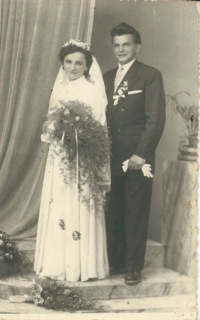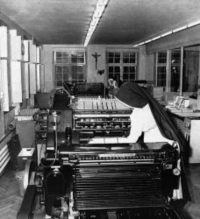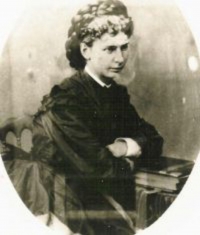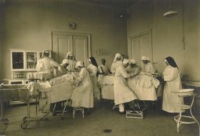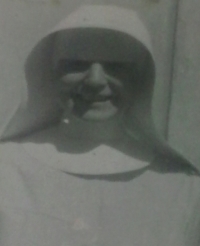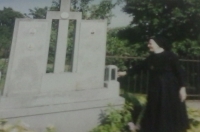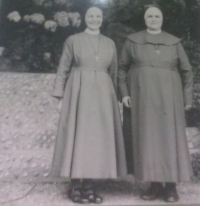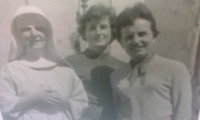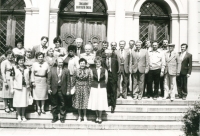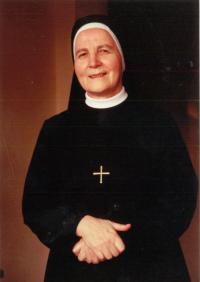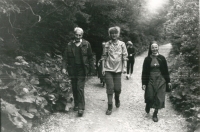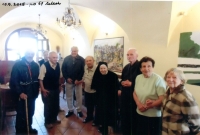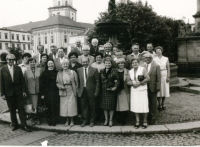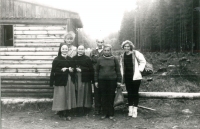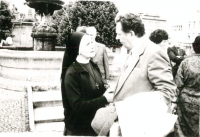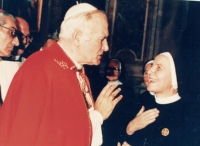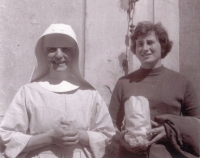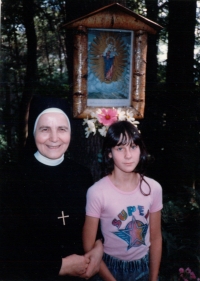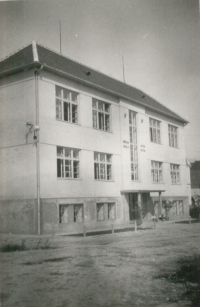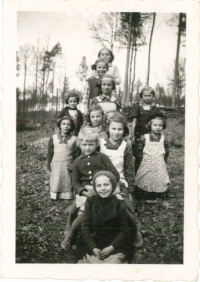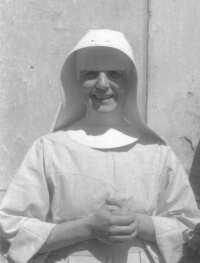Freedom is the greatest gift

Download image
Catholic nun, sister Bernardetta, with civil name Emílie Růžičková, was born on April 16, 1929 in Nítkovice near Kroměříž, on the border with the Vyškov district. She grew up with five brothers in a poor family and attended a primary school in Nítkovice and later a four-year higher school in Morkovice, where she walked for two hours daily through the forest. She wanted to become a teacher and applied to the Secondary Pedagogical School in Kroměříž. The admission procedure, which was attended by 200 applicants, took place in 1944 and was led by the Germans, who found out in detail the ancestors and traced potential Jewish roots. In the end, Emília was accepted to the school and graduated with honors in 1948. Thanks to a great recommendation, she joined as a techar a prestigious school in Bylnice in Wallachia, where were total of 12 teachers in the teaching staff. Later she taught in Valašská Senica and then in Hrádek u Slavičína. Due to the fact that she was led to faith in God from her childhood, after her third pedagogical position at the age of 21, she decided to join the religious order in the Monastery of the Merciful Sisters of the Holy Cross. In addition, the Marxist educational plan implemented at the time was against Emílie’s convictions and therefore she could not teach. A year after her admission to the order, she adopted the name Bernardetta. The monastery was confiscated by the communists on September 29, 1950, and turned into a medical school and emergency. The nurses, including Emílie, were taken to Ostrava for hospital assistance, despite the lack of previous experience in the field. Emilie therefore began studying medical school. The chairman of the graduation commission, a sworn communist, arranged that she would receive different questions than these proposed for the exam preparation. Emílie describes the moment as enlightened by the Holy Spirit, who helped her answer detailed questions about neurology. In 1957, the nurses were taken from the Ostrava hospital to the factories, while Emílie was transferred to an institution for the mentally handicapped, where she spent seven years. However, she never gave up her teaching profession - she secretly taught novices. After the Velvet Revolution, the nuns regained their monastery of the Holy Cross, but in a desolate state, and it took them two years to renovate it. Her story was recorded in 2016 as part of the Stories of the 20th Century Competition. At that time, she still lived in the monastery, already for 66 years.
